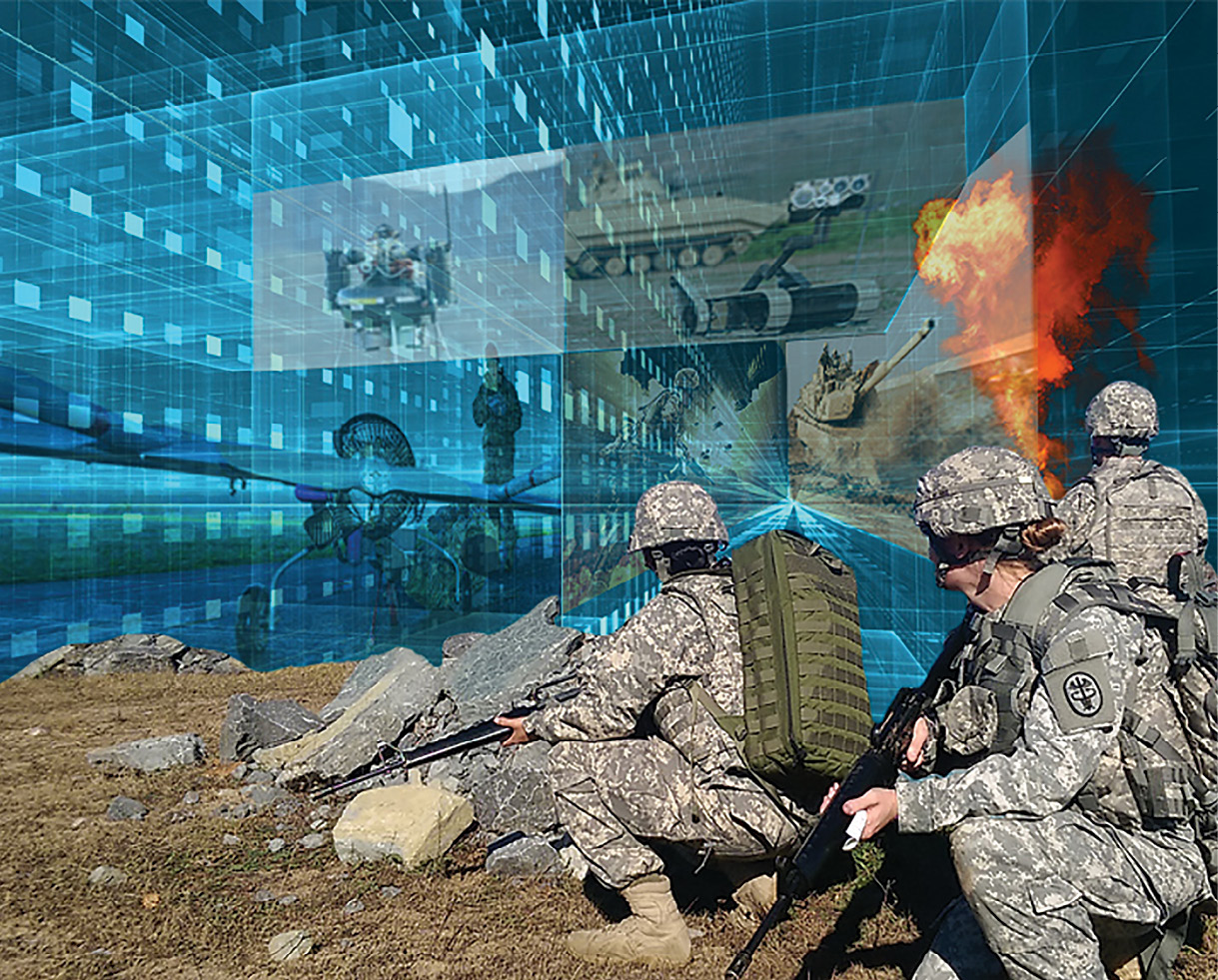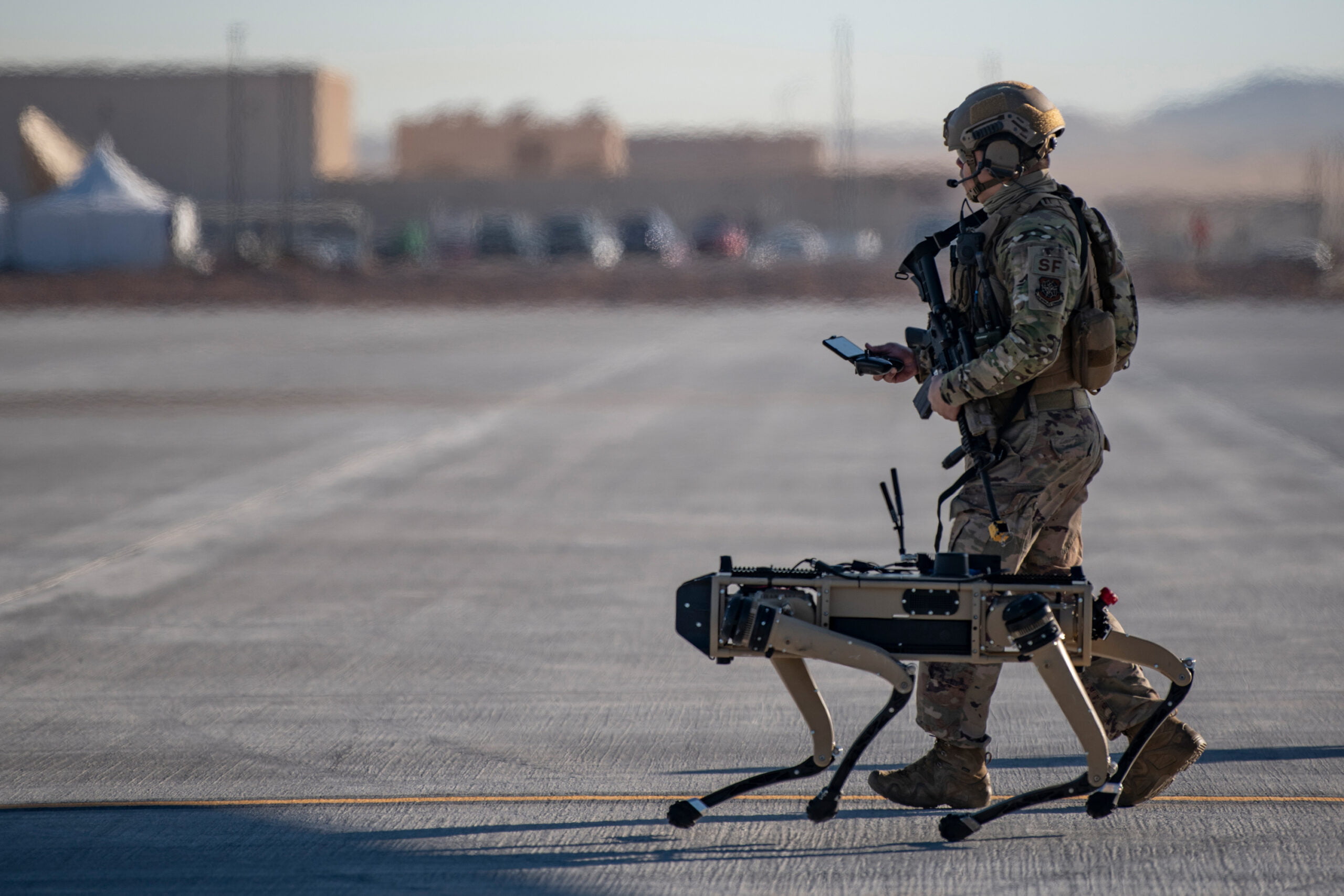Revolutionizing Warfare 2.0 : How Artificial Intelligence (AI) Will Change the Nature of Future Wars? Has Humanity Overstepped And Crossed the Event Horizon?
Humanity is increasingly stepping away from nature and into AI territory. The increasing dependence on technology and the growing importance of artificial intelligence in our lives has led to a significant shift. On the one hand, while there is an emerging debate about the impact of AI on several human jobs/roles, one cannot but go a bit further and look into how AI would be used to fight future wars. The scenario is both scary and treacherous and as the war of AI supremacy and dominance gets hotter between countries - so does the implications and fall out of such wars. Humanity started the race for a Nuclear arsenal, and we have weapons that can completely destroy Earth. There are nearly 15,000 nuclear weapons on planet Earth as of 2019, and it would take just three nuclear warheads to destroy one of the 4,500 cities on Earth, meaning 13,500 bombs in total, leaving 1,500 to be still used.

AIs went head-to-head against an experienced Air Force pilot, and hands-down crushed the human pilot. The human pilot didn’t get a single shot off against the AI. And one of the things that were quite remarkable was that the AI learned on its new techniques for dogfighting that humans actually couldn’t do – there’s a split second when the aircraft are circling each other and the aircraft are nose-to-nose, and there’s no good way for humans to get a shot off, but the AI could execute head-to-head gunshots.
This is not a potboiler Hollywood movie; in fact, this is a project that was done by the U.S. military to build an AI dogfighting agent, an AI agent that can control an aircraft in a simulator, although it has not been transported into the real world aircraft yet, but AI warfare is not a thing of the future anymore, it is increasingly becoming a reality, and many countries are already dabbling in this arena.
One of the examples of how AI is being used can be taken from China.
According to one estimate – At least 1 billion surveillance cameras are spying on the world right now, and more than half of them are in China, though the country has less than a fifth of the world’s population.
The Chinese government is taking the help of AI to sort through data from those hundreds of millions of cameras, and this is the technology that can identify faces, voices, and even how someone walks.
Paul Scharre investigated the country’s surveillance systems for his new book “Four Battlegrounds: Power In The Age Of Artificial Intelligence.” He writes that AI has the power to reshape the entire landscape of human governance and warfare, from enabling the spread of authoritarianism to influencing how wars start and end.

The Use Of AI In Warfare: A Developing Reality
It is difficult to know exactly which countries are working towards AI-enabled warfare, as many governments keep their military research and development programs confidential. However, several countries have publicly acknowledged their efforts to develop AI-enabled military capabilities.
The United States has invested heavily in AI research for military applications, and in 2019, the Department of Defense established the Joint Artificial Intelligence Center (JAIC) to accelerate the development of AI technologies for military use.
China is also known to be investing heavily in AI for military applications and has set a goal of becoming a global leader in AI by 2030. In 2017, China’s government released a national strategy for AI development, which includes a focus on military applications such as autonomous weapons and unmanned systems.
Russia is another country that is believed to be investing in AI for military applications. In 2020, the Russian government announced plans to develop autonomous weapons, and Russian President Vladimir Putin has been vocal about the need for his country to lead in the field of AI.
Other countries that are believed to be working on AI-enabled military technologies include the United Kingdom, Israel, South Korea, and Japan.
Yet, it is essential to note that the development of AI for military purposes is not limited to these countries alone, and many other nations may be secretly pursuing similar efforts.
Concerns:
The use of AI in warfare is both a complex and sensitive issue. There are concerns about the potential for AI-enabled conflict to destabilize international relations and increase the risk of unintended consequences.

AI Warfare And Traditional Wars
AI warfare has the potential to be fundamentally different from conventional wars fought on Earth in several ways:
Increased speed and precision: AI-enabled weapons can operate faster and with greater accuracy than human soldiers, potentially allowing for more efficient and effective military operations.
Increased reliance on data and analytics: AI-enabled warfare will likely rely heavily on data analysis and predictive analytics to inform military decision-making.
Concerns:
Greater emphasis on cyber warfare: With the increasing reliance on technology in modern warfare, cyber attacks are becoming a more significant threat. AI-enabled defences and attacks could greatly enhance a country’s ability to conduct cyber warfare.
The potential for unintended consequences: While AI-enabled warfare has the potential to reduce human casualties and increase efficiency, there is also the potential for unintended consequences. AI systems are only as good as the data they are trained on, and if this data is biased or incomplete, it can lead to errors and unintended consequences.
Increased ethical concerns: The deployment of autonomous weapons raises significant ethical concerns, including questions about who is responsible for their actions and how they will be used in conflict.
It is crucial to note that the use of AI in warfare is still a relatively new concept, and the full extent of its impact on modern warfare remains to be seen. However, it is clear that AI-enabled warfare has the potential to fundamentally alter the way wars are fought on Earth, with both opportunities and challenges that must be carefully considered.

The Way Future Wars May Be Fought With AI
AI has the possibility to revolutionize the way wars are fought on Earth. AI has already shown its capabilities in areas such as image recognition, natural language processing, and autonomous decision-making.
Here are some ways in which AI can change the future of warfare:
Autonomous weapons: AI-powered weapons such as drones and robots can operate autonomously without human intervention. This can reduce the risk of human casualties and allow for more precise targeting. Nevertheless, it also raises ethical concerns, such as the risk of these weapons being used inappropriately or malfunctioning.
Predictive analytics: AI can be used to analyze vast portions of data from various sources to predict the movements and intentions of an enemy. This can help military planners to prepare better and respond more quickly to potential threats.
Cybersecurity: AI can be used to detect and prevent cyber attacks, which are becoming increasingly common in modern warfare. AI algorithms can analyze network traffic and identify potential threats before they can do any damage.
Logistics: AI can optimize supply chains, predict maintenance needs, and improve overall efficiency in military logistics. This can help reduce costs and improve readiness.
Decision-making: AI can be used to assist military leaders in decision-making, providing them with data-driven insights and recommendations. This can help them make better decisions faster and with more confidence.
Concerns:
However, the deployment of AI in warfare also raises some significant challenges. One of the biggest concerns is the risk of unintended consequences.
AI systems are only as good as the data they are trained on, and if this data is biased or incomplete, it can lead to errors and unintended consequences. Additionally, the deployment of AI in warfare raises ethical concerns, such as the potential for autonomous weapons to be used indiscriminately or without proper human oversight.
In conclusion:
AI has the potential to change the way wars are fought on Earth. Its deployment in warfare raises opportunities and challenges, and it is important to carefully consider the potential consequences of using AI in military operations. Ultimately, the responsible use of AI in warfare will depend on how well we can balance the benefits and risks of this powerful technology.
Overall, the increasing reliance on technology and the growing importance of artificial intelligence in our lives has led to a significant shift away from nature and towards AI territory. While this has brought many benefits, it is crucial to consider the potential negative impacts on our relationship with the natural world and the need to balance technology with a respect for nature.






